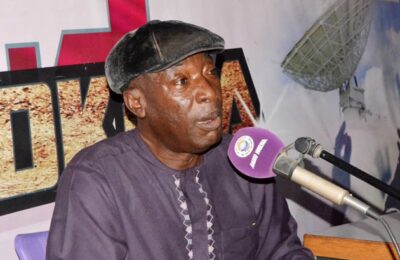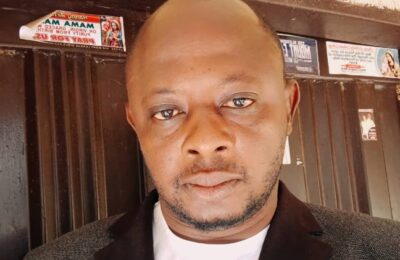The establishment of Ajaokuta Steel plant in Kogi State was seen as the desired step towards heralding Nigeria into the industrial age. But 30 years after, the plant has remained mothballed as the equipment and other facilities are still lacking. WALE IBRAHIM, looks at the problems and prospects of the plant if allowed to come on stream.
The construction of Ajaokuta Steel plant more than 30 years, was intended to be the pivot on which the industrialization of Nigeria would take place. However, today, the gigantic edifice has remained abandoned, without achieving the noble aim for its existence.
The coming of the military in the 80’s disrupted activities at the Ajaokuta Steel Plant, National Iron Ore Company, Itakpe and all subsidiaries like Oshogbo, Aladja and Katsina steel rolling mills, as there were no clear direction by the successive administrations to revamp them.
Investigations revealed that there is no doubt that a functional steel plant and allied subsidiaries will play a major role in propelling Nigeria to realise the objective of vision 20-2020, of being among the 20 best economies of the world.
One wonders why the federal government has not been able to take the bull by the horns in the last 14 years of democratic administration, considering that it took the then NPN -administration four years to build the plants and questions agitating Nigerians are why is the Ajaokuta plant still underutilised after 98 percent completion?
However, in line with the determination to realise the objectives of vision 2020, the need to revive the ailing Ajaokuta Steel Plant has been stressed.
The Sole Administrator of Ajaokuta Steel Company, Engineer Isah Joseph Onobere, who disclosed this at the facilities tour of the plants, stated that Ajaokuta Steel plant is not obsolete, stressing that the plant which was established at the Second Republic with the aim of fast-tracking the country industrialisation, was commissioned in 1983, but has not been utilised to its fullest.
Obonere, however explained that the federal government under President Goodluck Jonathan has been working round the clock to ensure it is completed, stressing that four plants and the blast furnace require about N80billion to be completed. He pointed out that the legal tussle that trailed the cancellation of the concessional agreement between the Federal Government and the Global Infrastructures Limited since 2007 has been stalling the commencement of work at the Ajaokuta Steel Plant.
While speaking on the plans of the management team in Ajaokuta, he stated that the steel plant is not obsolete as being touted by some people who are largely ignorant of steel technology.
“Let me quote from the recent technical audit conducted by the Ukrainians who inspected the plant; the equipment and facilities are satisfactory. Mechanically, the steel plant equipment are in good condition”, he stressed. Obonere further explained that in 2011, the world steel statistical year book put the total crude steel production in 2010 at 1.4 billion tons out of which 1.04 billion tons is through blast furnace technology, stating that this gives an average of 74 percent of total steel produce in the world.
He pointed out that it is the same technology adopted at the Ajaokuta Steel Plant and wondered how a technology that produces that amount of steel could be said to be obsolete.
He said, “There is need to educate the people that the blast furnace technology adopted in Ajaokuta is among the best method through which large volumes of steel are produce in the world today. Based on this, I have held series of consultation with the consultants to sensitise them to brace up for the task of starting operational activities in some key selected areas of the plants”.
He also stressed that it is important to note that all developed nations got to where they are today because they have a virile steel sector, adding that even when some of them like Japan do not have raw materials for steel production and Nigeria has virtually all the needed raw materials production is still in the doldrums.
Onobere, who was optimistic, highlighted the merit of a completed and commissioned Ajaokuta steel plant such as employment generation as it will produce 1.3 million metric tons per annum of liquid steel and will become net employer, as it will also provide direct employment to 15,000 and indirect employment 500,000 skilled, semi and unskilled workers and various others in the downstream and upstream sectors.
Other advantages of a functional Ajaokuta steel plant are facilitating technological growth, acquisition of technical expertise , providing input for infrastructural development ,adding value to our natural minerals that abound and untapped all over the country, foreign exchange earner , great opportunity for varied capacity building , positive march toward the realisation of vision 20- 2020, poverty reduction, wealth generation and economic diversification .
Recently, the Kogi State Governor, Mr. Idris Wada had suggested that the Ukrainians will be of great help in actualizing the federal government’s efforts at revitalise the ailing steel plant and the Itakpe Iron Ore Mining company in the state.
Wada made this known when he received in audience the Ukrainian Ambassador to Nigeria, Mr. Valeril Vasyliev, who paid a courtesy call on him, as he commended the impact of the country towards the establishment of the Ajaokuta Steel Company.
Wada expressed the hope that the reactivation of the company would not only boost industrialization of the country but also create opportunities for the youths, noting that the state will collaborate with the Ukrainian government in the development of agriculture and solid minerals.
Earlier, the Ukrainian Ambassador told the governor that the purpose of his visit was to seek economic relation with his government in view of the abundant natural potentials available in the state, stressing that his country could make positive impact towards the government’s dream of providing mechanised agriculture to the people of the state.
A Lokoja based human rights activist and Director of Centre for Human Rights and Conflict Resolution, Comrade Idris Milk Abdul, stated that the resuscitation of Ajaokuta Steel lies in the fact that the federal government must show a total commitment with political will to make it work.
Abdul said that it is disheartening to see that government officials are not very serious about the existence and low productivity of a plant that can transform the economy of the country and Kogi State, lamenting that if the administration of Alhaji Shagari could build this gigantic steel plant over 30 years ago, and nothing has been done to make it productive, it then shows that the country is not ready for industrialisation.
The activist advised the federal government to jettison internal and external political impediments and take the bulls by the horns to complete the project so as to propel the much anticipated industrialisation, stressing that this will also fast-track the need to be one of the fastest growing economies in 2020.




